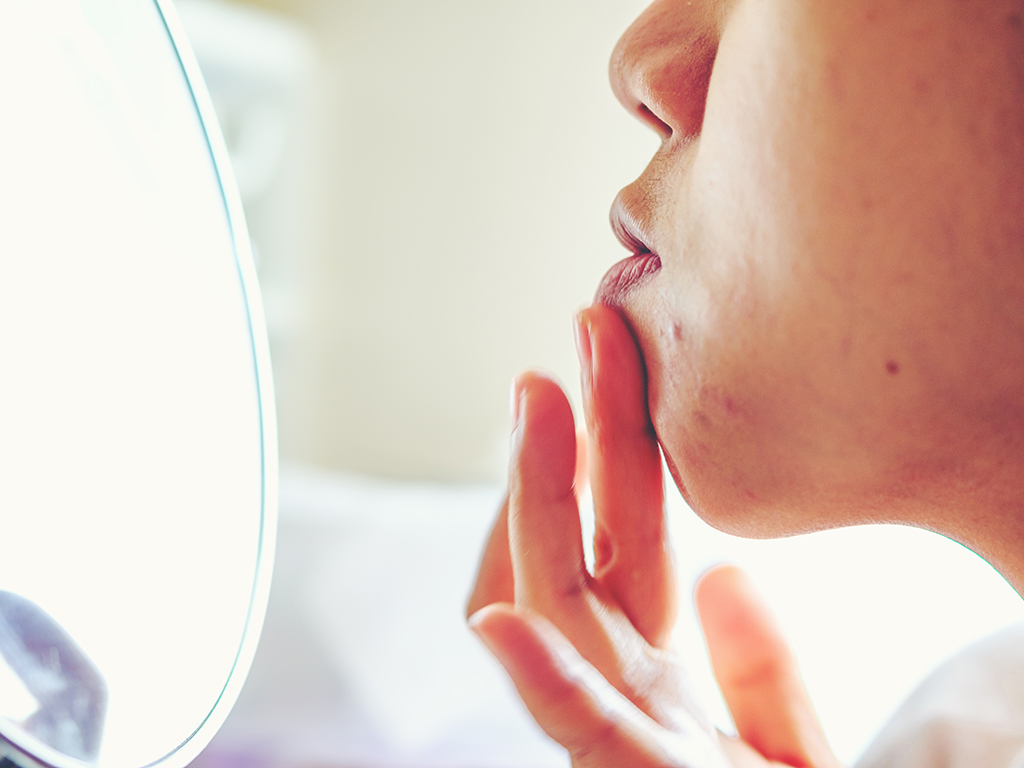Struggling with acne seems like an issue that should be relegated to our awkward teen years, but many adults still deal with breakouts on their face. What we rarely talk about, however, are the less conventional areas where pimples can pop up, like the vagina, buttocks, testicles and ears.

“All pimples come from the same glands — sebaceous glands — and they’re all variations on a theme,” says Dr. Julia Carroll, medical director of Compass Dermatology in Toronto. “In areas like the vagina and testicles, for example, you may just see a little bump, which is the gland, but if it’s inflamed, it will be more red and could be painful.”
WATCH BELOW: These are the common causes for adult acne, according to experts

Sebaceous glands are associated with hair follicles, and although these follicles differ from the ones on our heads, even so-called peach fuzz, like what you’d find on your buttocks or around your ears, makes acne a possibility. (It’s probably also why you likely have never had a pimple on the palm of your hand or sole of your foot — there’s no peach fuzz there.)
Acne occurs when there’s either an excess production of sebum, dead skin cells accumulating around the pores, or there’s a bacteria buildup.

Get weekly health news
“On the buttocks, for example, the pimples look more like folliculitis or inflammation around the hair follicles. In the ears, it’s more comedones (or blackheads) that form when people have thicker sebum that collects in pores,” Carroll says.
With the vagina and testicles, acne can be caused by folliculitis or it could be due to misplaced glands, known as fordyce spots. These are small white bumps that are present on the scrotum or the labia, and they occur in roughly 70 to 80 per cent of adults.
READ MORE: Which acne home remedies actually work?
Carroll says diagnosis often takes a long time, in some cases up to 10 years, because of a combination of many doctors not having the disease top of mind and patients being too embarrassed to talk about it. Its appearance can start as small and painful bumps either under the surface of the skin or at the surface. They usually become enlarged, can break open and discharge a foul-smelling pus.
“It can be a very debilitating condition but fortunately there are many new treatments available for it as well as ongoing research,” she says.
How to treat these pimples
As always, don’t try to squeeze a pimple in order to speed up recovery, especially one that’s on the vulva or scrotum.
“These are sensitive areas that are difficult to see. If you go in blind to pop a pimple, you’re asking for trouble. The same goes for your ears,” she says. “The problem with people trying to treat the pimples on their buttocks is that they tend to be very deep, and people end up digging at them and causing more inflammation. I see a lot of scarring from people trying to self-treat.”
In some cases, dermatologists will put their patients on an acne medication, like Accutane, to deal with these breakouts, although it will take about six weeks before it starts to work. And Carroll will extract certain types of pimples for patients, but she stresses that this should only be done by a board-certified dermatologist or a medical aesthetician under the supervision of a dermatologist.
READ MORE: ‘Sugar face’ may not be real, but here’s what sugar can do to your skin
To prevent future breakouts, she advises showering regularly to keep the skin as clean as possible. For the buttock area, she says to use an exfoliating or antibacterial body wash, and to avoid spending too much time in sweaty gym clothes.
“Sometimes it’s about the fabrics, too. Look for sweat-wicking fabrics because bacteria loves sweat,” she says. “And if those glands are already a bit inflamed, sweat hanging around in those areas will make your condition worse.”










Comments
Want to discuss? Please read our Commenting Policy first.